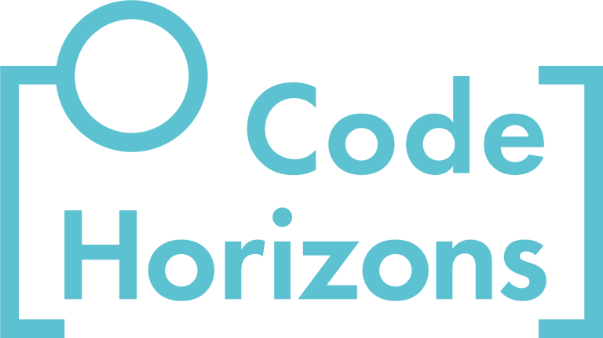Coding Seminars
We provide short seminars that cover a variety of coding techniques, which have become an essential element of research productivity in science and industry.
Cutting-edge. Hands-on. Complete.
Public Seminars & Onsite Training
Code Horizons offers public livestream courses and provides on-site seminars, training, and consulting services. We provide participants and clients with a solid understanding of coding methods.
Public Seminars
Code Horizons offers short seminars on a variety of important and timely coding topics. Each course features small group sizes, top-notch expert instructors, and extensive hands-on practice. Participants will use their own laptop computers, pre-loaded with relevant software and datasets provided prior to the beginning of the seminar.
Our upcoming seminars are listed below. Just click on the course titles for detailed information and registration. Please check back periodically for updates. All courses are livestreamed via Zoom. Video recordings of the sessions will be available to participants for an additional four weeks after the end of the seminar.
Using Large-Language Models for Social Science Research (Sold Out)
February 27-March 1, 2025
This seminar explores how to integrate large language models (LLMs) into research on human attitudes and behavior. It provides an introduction to LLMs like ChatGPT, Claude, Gemini, and Llama, discusses the critical concept of prompt engineering, and teaches you how...
Learn More
Introduction to R for Data Analysis
March 12-13 & 15, 2025
R is a free and open-source package for statistical analysis that is widely used in the social, health, physical, and computational sciences. Researchers gravitate to R because it is powerful, flexible, and has excellent graphics capabilities. It also has a...
Learn More
Automatic Item Generation and Validation
March 12-13, 2025
A Network Integrated Approach using Large Language Models in R This innovative course introduces a new way to create and validate questionnaires and scales using artificial intelligence, specifically large language models (LLMs). In this course you will learn a fully...
Learn More
Interpreting and Communicating Statistical Results with R
March 27-28, 2025
Check out Dr. Arel-Bundock’s blog post, where he describes using the marginaleffects package for R to analyze a 2×2 factorial design. This seminar is designed to help you tackle the challenges of understanding and conveying complex statistical results. Coefficient estimates...
Learn More
Version Control for Data Analysis Using GitHub
April 24-25, 2025
Check out Dr. Gullickson’s blog post, where he gives a brief introduction to creating your first R project repository using GitHub. Git is a free, open-source distributed version control system that is used by programmers and data analysts to track...
Learn More
Interactive Visual Dashboards Using R Shiny
April 30-May 2, 2025
Solid statistical analysis, on its own, is no longer sufficient. Providing key decision-makers with the information and analysis they need often requires presenting complex concepts in a visually appealing way. Interactive dashboards are a great way to accomplish this. Interactive...
Learn More
R for Stata Users
May 29-30, 2025
R is a free and open-source package for statistical analysis that is widely used in the social, health, physical, and computational sciences. While many excellent analysis packages exist, researchers gravitate to R because it is powerful, flexible, has excellent graphics...
Learn More
Stata Basics
June 16-17, 2025
In just 8 hours (over 2 days), you will gain the skills to efficiently and effectively use Stata. This will also give you enough background to take other seminars and pursue your training further. This seminar will provide a comprehensive...
Learn More
R for SPSS Users
June 16-17, 2025
In just 8 hours (over 2 days), you will learn how to convert SPSS workflow into R code from the perspective of an instructor who is a long-time user of both programs. SPSS users in the social sciences and other...
Learn More
Essential R Skills for Intermediate Users
June 30-July 1, 2025
Go beyond basics to write cleaner, more effective code and enhance your research skills! R has become the pre-eminent software package for conducting statistical analyses in a wide range of fields. However, harnessing its full potential requires moving beyond basic...
Learn More
LLM Text Generation in R: Practical Prompt Engineering
July 10-11, 2025
Have you ever wondered how to generate new items automatically for your research project (survey, questionnaire) AI? Are you interested in having more control over the output of ChatGPT responses? Do you want to verify the impact of different prompt...
Learn More
Introduction to Python for Data Analysis
July 15-18, 2025
Python is one of the most popular languages in the world. It is a general-purpose language, but also highly user-friendly. This makes Python a very powerful tool, with a relatively easy learning curve. It is also open-source and supported by...
Learn More
Text Classification with Large Language Transformer Models in R
August 5-8, 2025
This seminar will introduce you to basic techniques to convert unstructured text data to structured data in R. As a necessary precursor to large language transformer models (LLMs), the course will also cover word embeddings and their use, and you...
Learn More
Bayesian Analysis for Qualitative Evidence
August 26-27, 2025
Qualitative evidence can make vital contributions to social science research that strives for explanation. Diverse kinds of qualitative information, including but hardly limited to interviews, ethnographic observations, news reports, meeting notes, and archival records, provide “clues” that help us adjudicate...
Learn More
